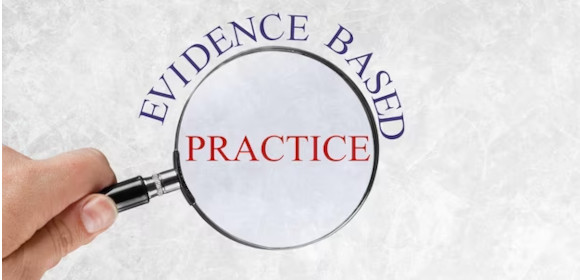64+ Evidence Based Practice Examples to Download
The scientific method is a specific tool and procedure that researchers and scientists do to obtain data to help prove their hypothesis. Not only that, but the data can also prove the null hypothesis, which acts as the juxtaposition of the main hypothesis.
1. Evidence Based Practice Study Design
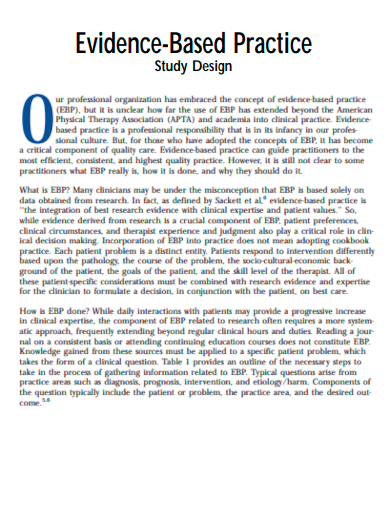
jospt.org
2. Evidence Based Practice at University
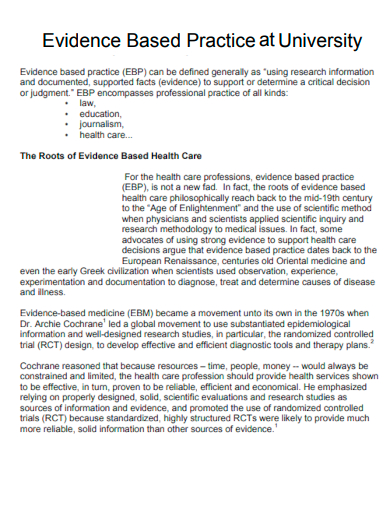
nuhs.edu
3. Evidence Based Practice in Psychology
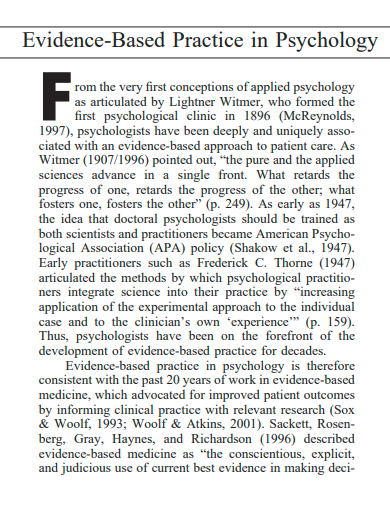
hcmarketplace.com
4. Evidence Based Practice Methodology
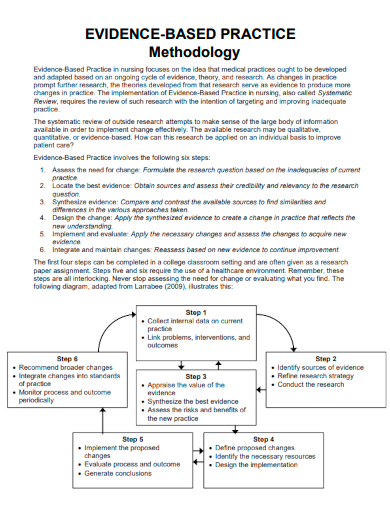
una.edu
5. Evidence Based Practice Skills
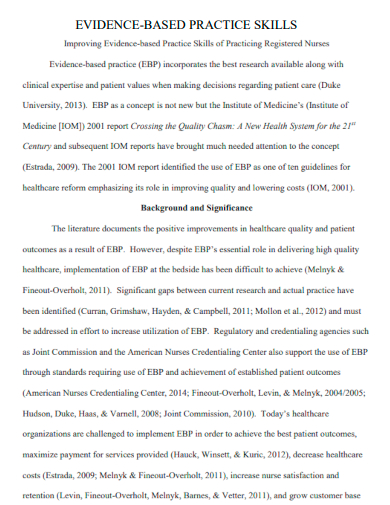
wku.edu
6. Pilot Study Evidence Based Practice
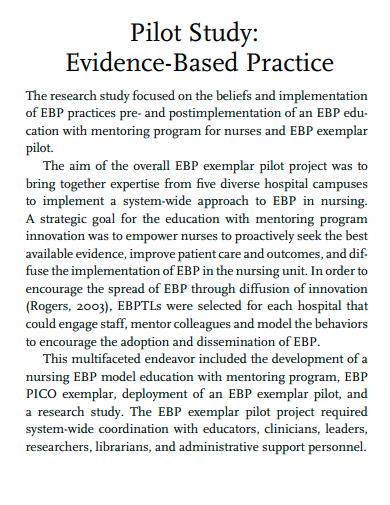
hopkinsmedicine.org
7. Evidence Based Approach to Practice
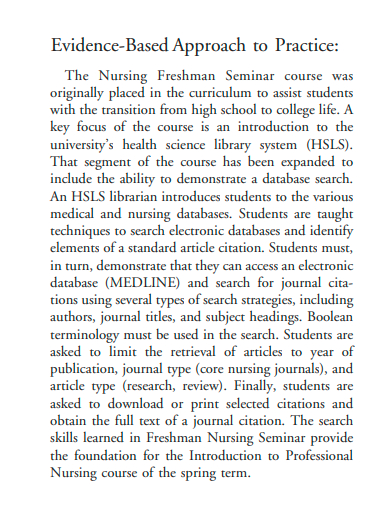
nata.org
8. Evidence Based Practice Guidelines
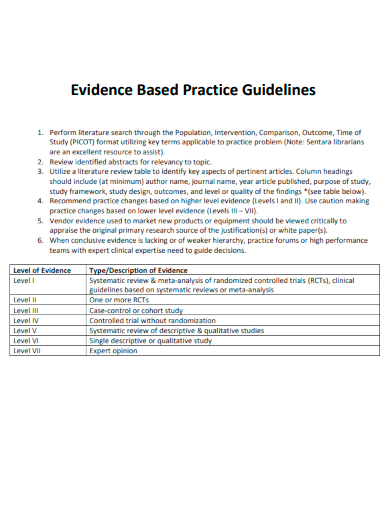
stacksdiscovery.com
9. Evidence Based Practice Childrens Health
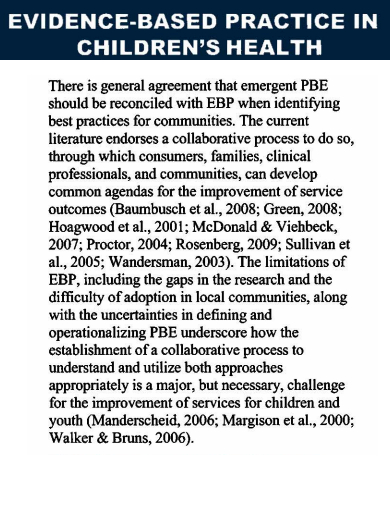
cbcs.usf.edu
10. Use and Misuse of Evidence Based Practice
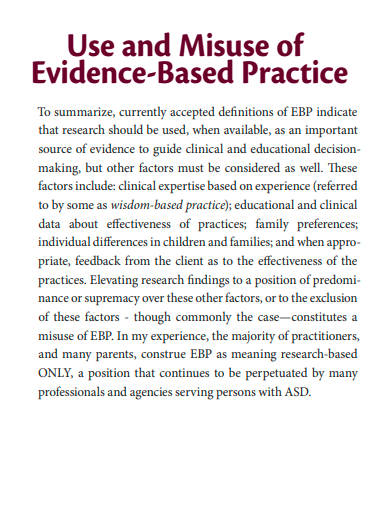
barryprizant.com
11. Evidence Based Practice in Field Education
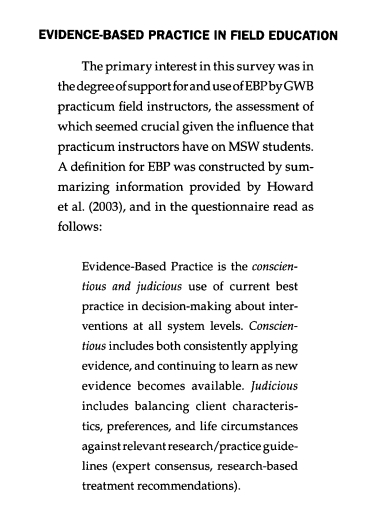
socialserviceworkforce.org
12. Evidence Based Practice in Social Work
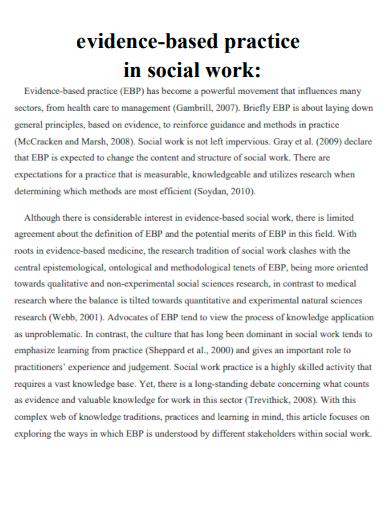
diva.org
13. Building an Evidence Based Practice
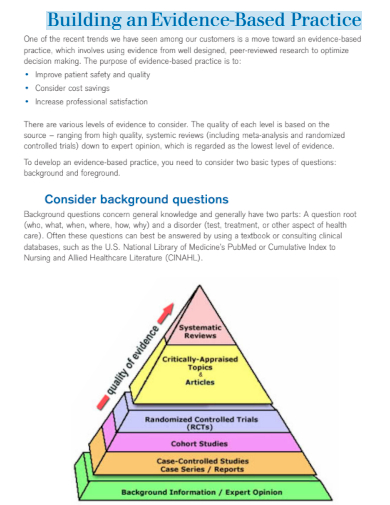
draeger.com
14. Evidence Based Clinical Practice
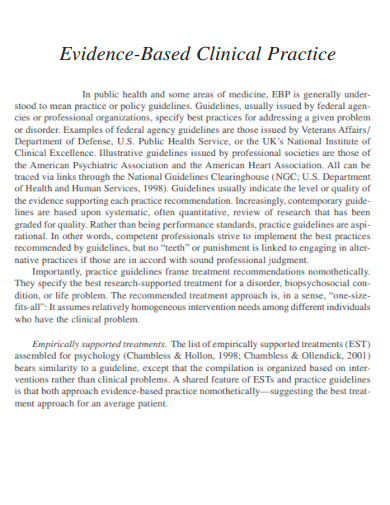
weber.edu
15. Evidence Based Practice Model
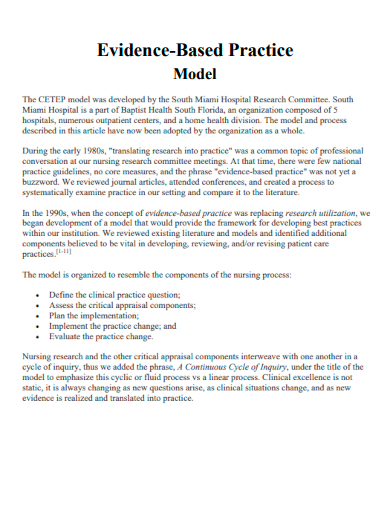
baptisthealth.net
16. Evidence Based Practice Criticisms
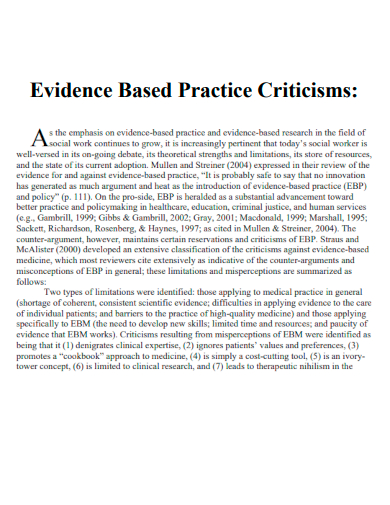
tdl.org
17. Evidence Based Practice Changes
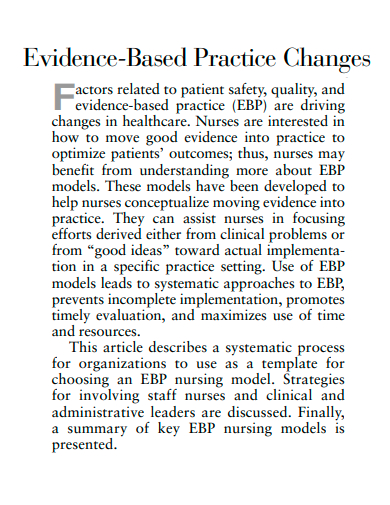
kau.edu.sa
18. Evidence Based Practice and Research Committee
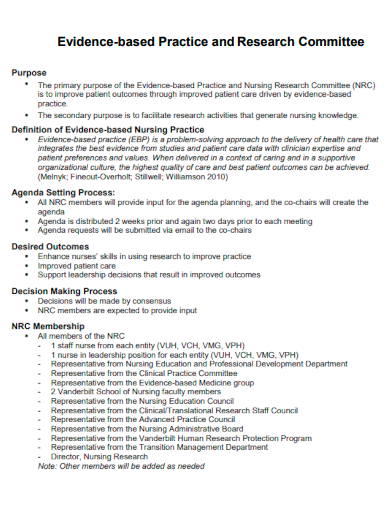
vumc.org
19. Evidence Based Practice in School
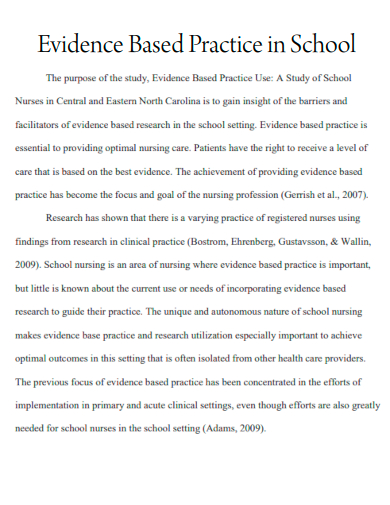
gardnerwebb.edu
20. Evidence Based Practice Manual
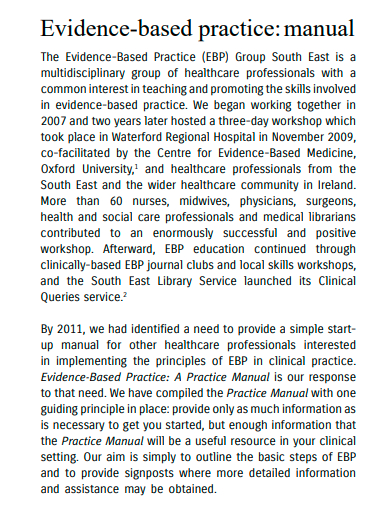
hse.ie
21. Evidence Based Practice in Human Service
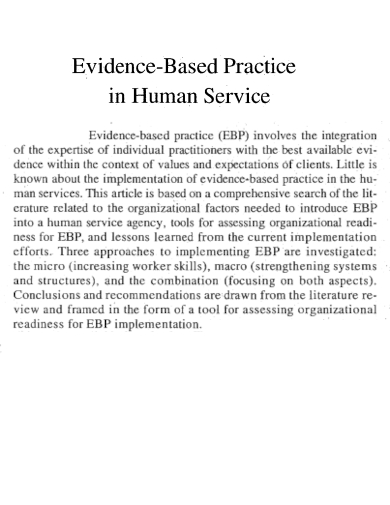
berkeley.edu
22. Evidence Based Practice Institute
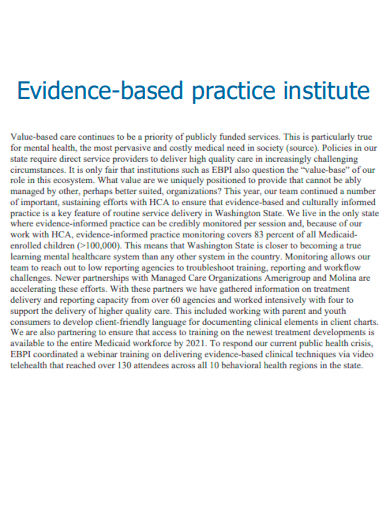
hca.wa.gov
23. Ethics and Evidence Based Practice
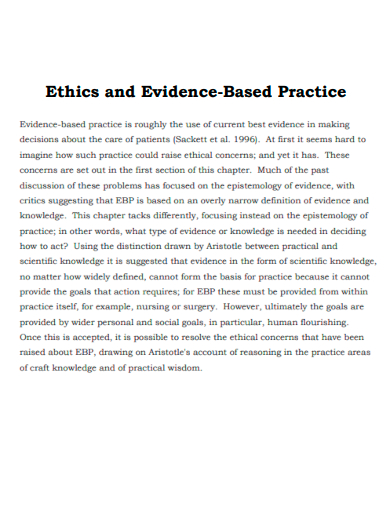
shu.ac.uk
24. Promoting Evidence Based Practice
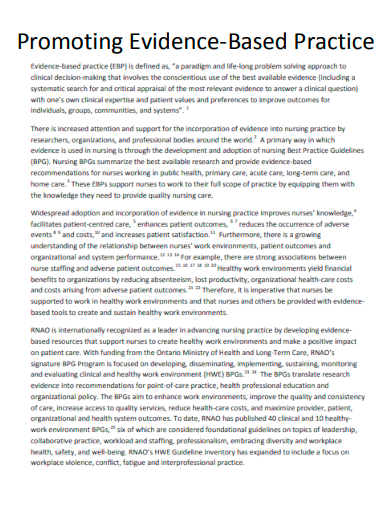
rnao.ca
25. Child Trauma Evidence Based Practice
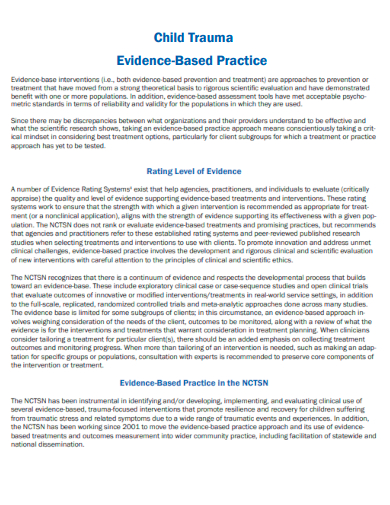
nctsn.org
26. Evidence Based Practice & Council
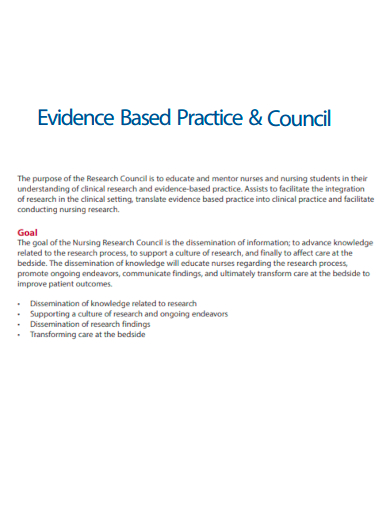
princetonhcs.org
27. Evidence Based Practice and Reproducibility
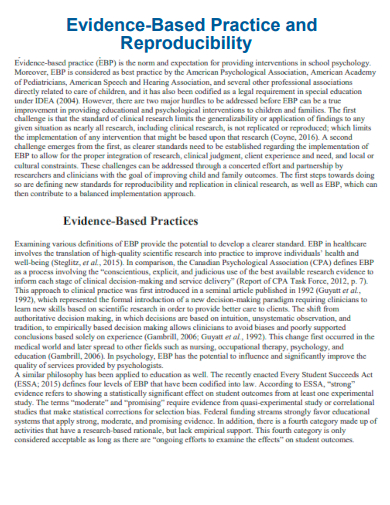
mcgill.ca
28. Evidence Base Practice Target Practice
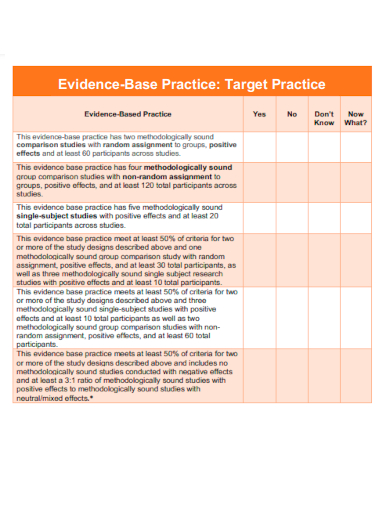
nemtss.unl.edu
29. Evidence Base Practice Matters
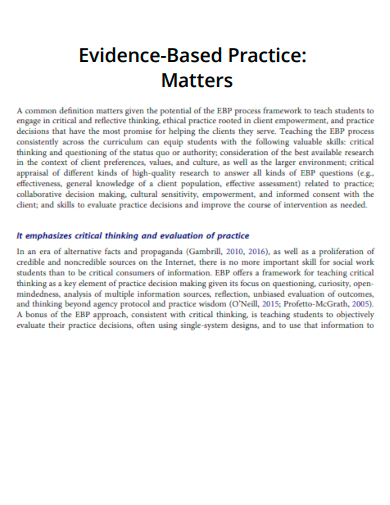
tandfonline.com
30. Evidence Base Practice Center Program
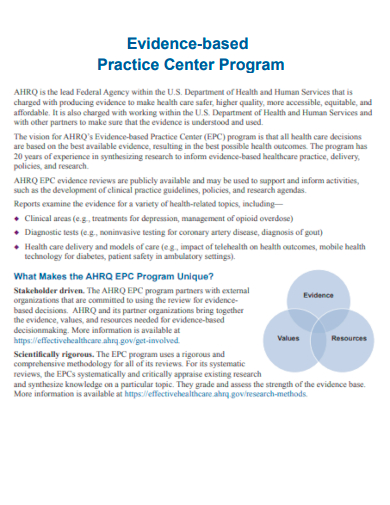
rand.org
31. Evidence Based Practice Movement
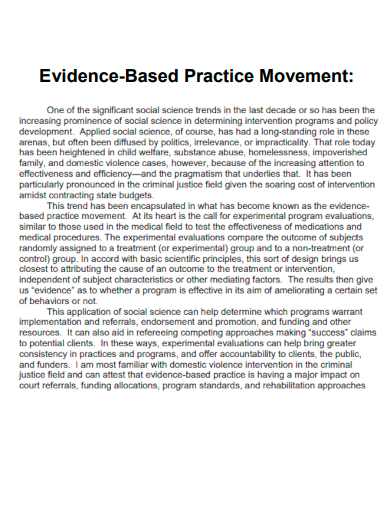
biscmi.org
32. Evidence Based Practice Position Statement
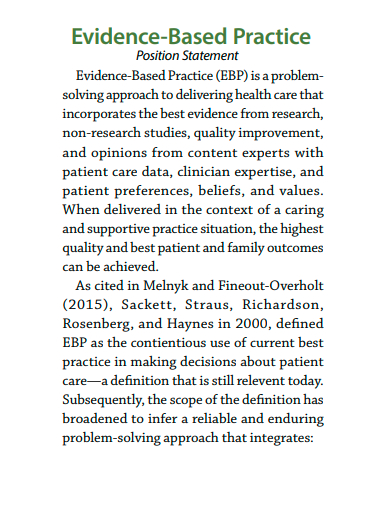
fcninternational.org
33. Teaching Evidence Based Practice
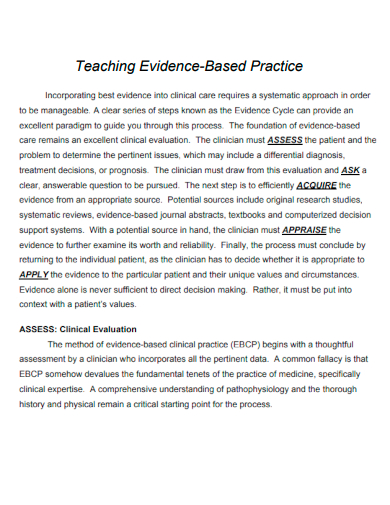
duke.edu
34. Application of Evidence Based Practice
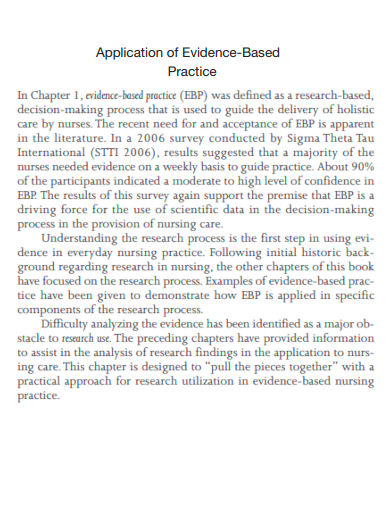
jblearning.com
35. Culture of Evidence Based Practice
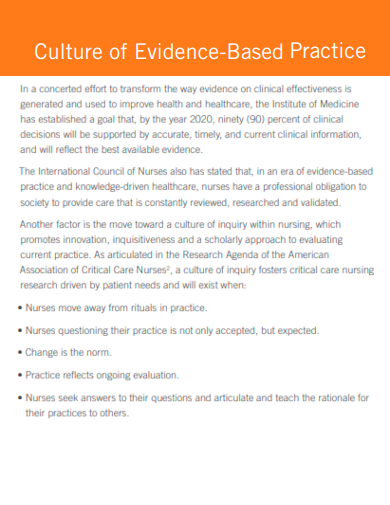
elsevier.com
36. Systematic Reviews in Evidence Based Practice
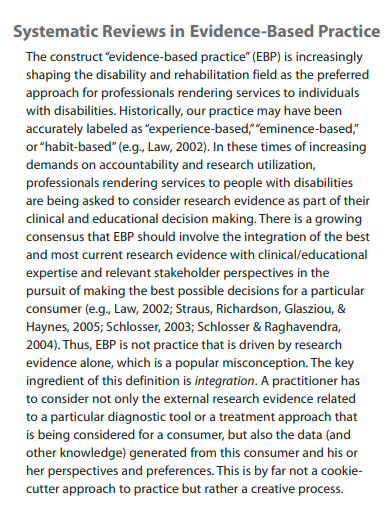
ktdrr.org
37. Basic Evidence Based Practice
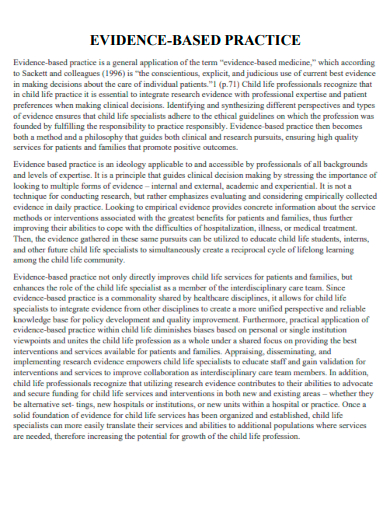
childlife.org
38. Evidence Based Practice Policy
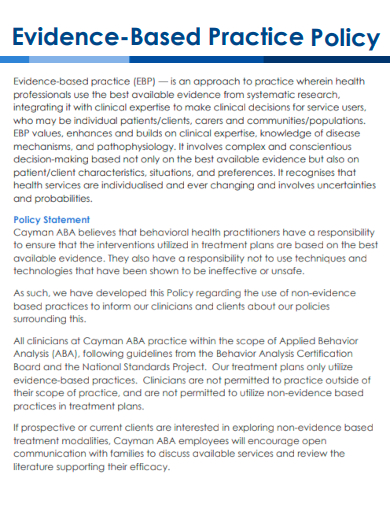
aacnjournals.org
39. Aligning Evidence Based Practice
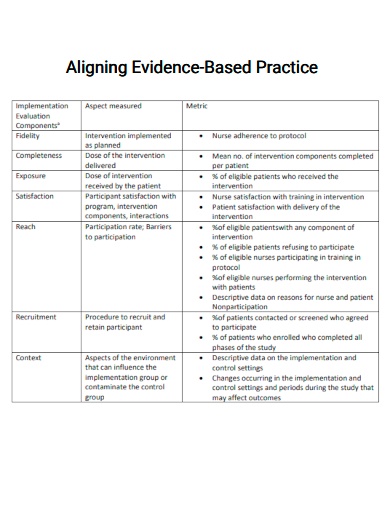
marquette.edu
40. Evidence Based Practice Group
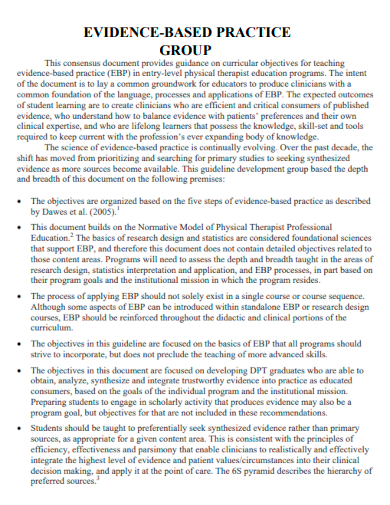
aptaeducation.org
41. Evidence Based Guidance into Practice
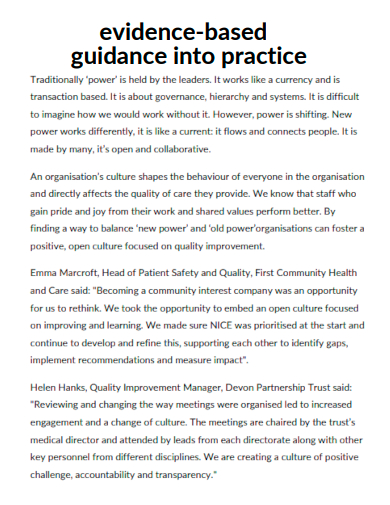
nice.org.uk
42. Evidence Based Practice in Healthcare
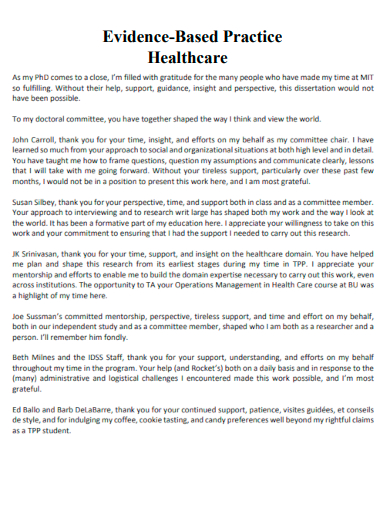
dspace.mit.edu
43. Evidence Based Practice in Community
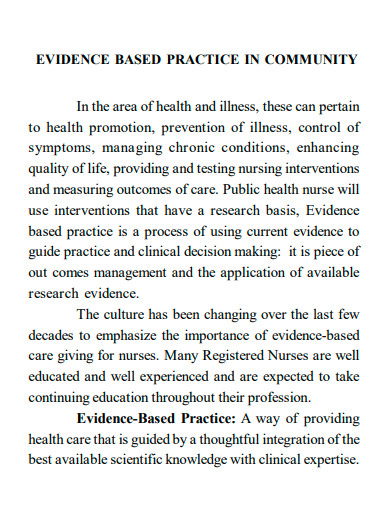
bibliomed.org
44. Formal Evidence Based Practice
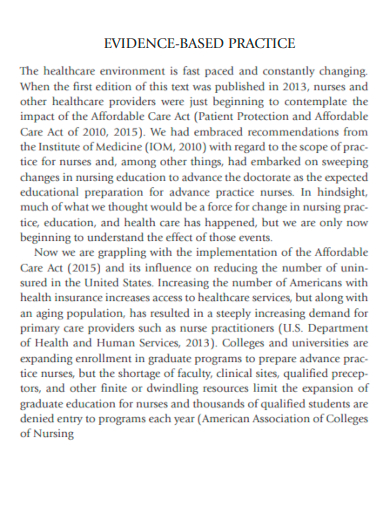
jbpub.com
45. Evidence Based Practice in the 21st Century
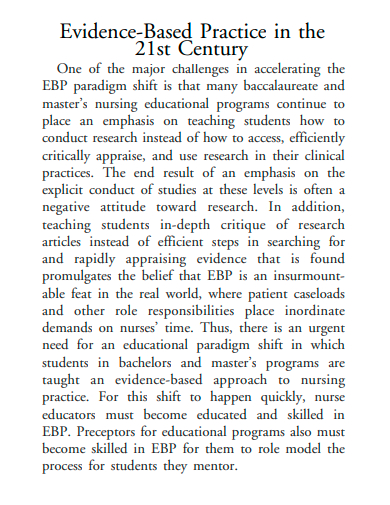
ucdavis.edu
46. Selecting and Implementing EBPs
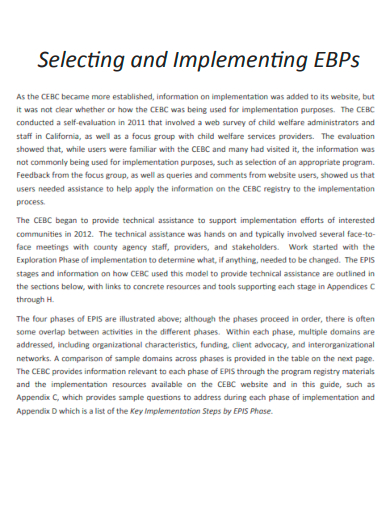
nj.gov
47. New Graduate Evidence Based Practice
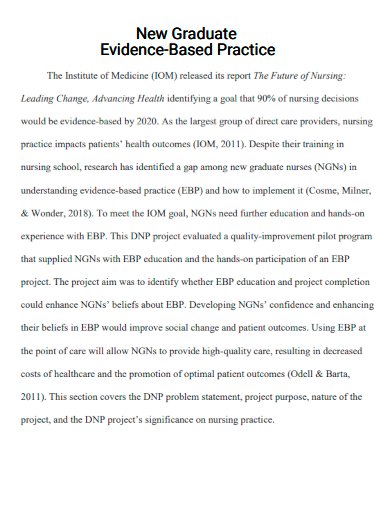
waldenu.edu
48. Standard Evidence Based Practice
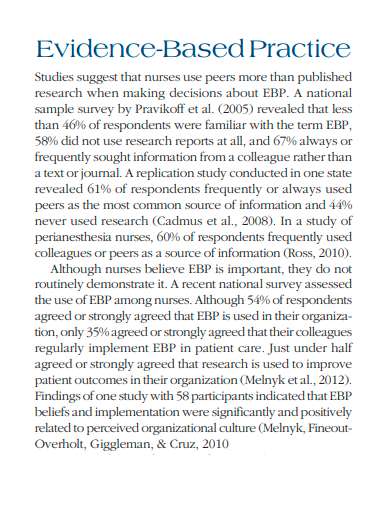
ceconnection.com
49. Evidence Based Health Practice
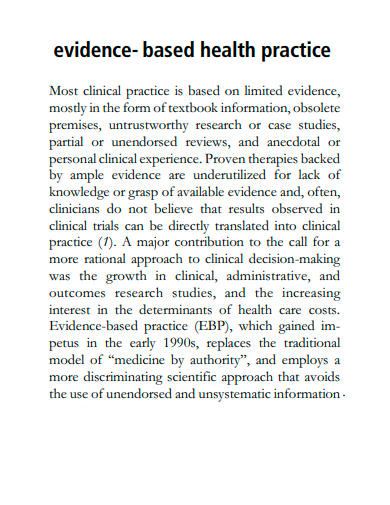
scielosp.org
50. Evidence Based Clinical and Public
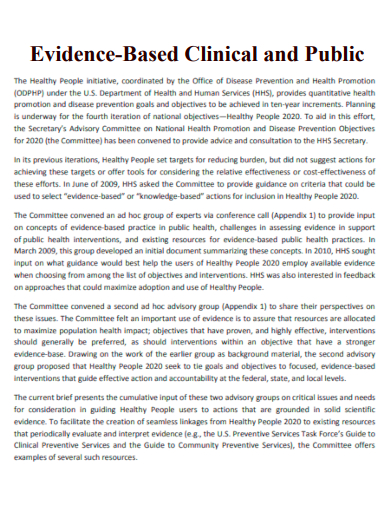
health.gov
51. Sample Evidence Based Practice
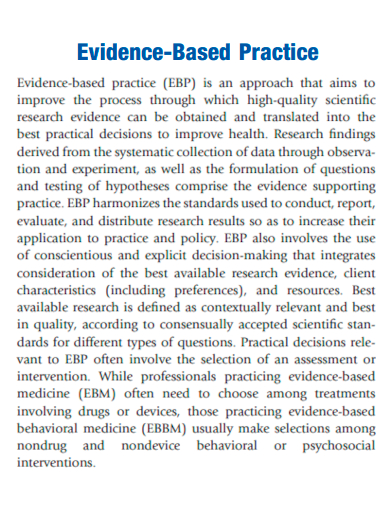
jstor.org
52. Evidence Based Practice Workbook
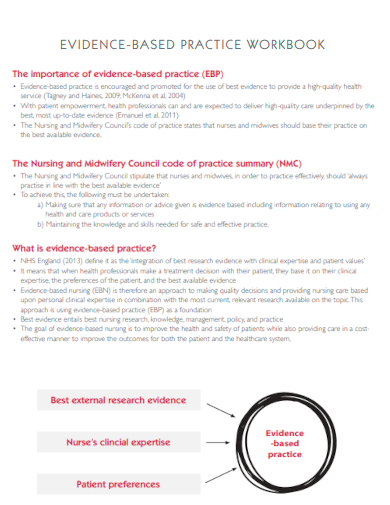
vygon.co.uk
53. Evidence For and Against Evidence Based Practice
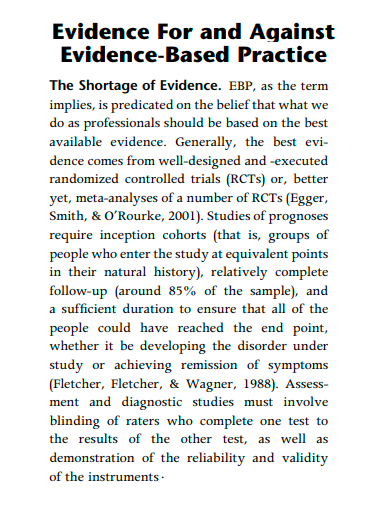
citeseerx.ist.psu.edu
54. Evidence Based Program and Practice
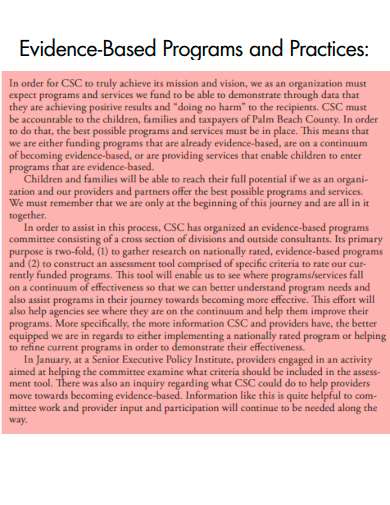
childhelp.org
55. Professional Evidence Based Practice
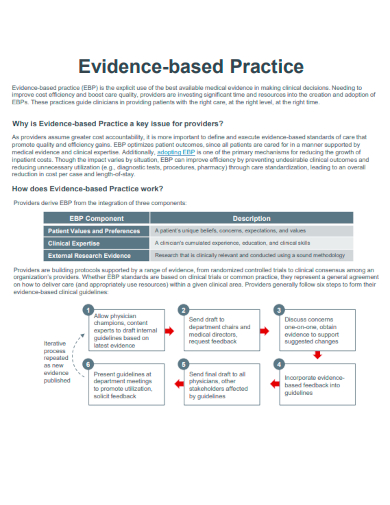
advisory.com
56. Revolutionizing Evidence Based Practice
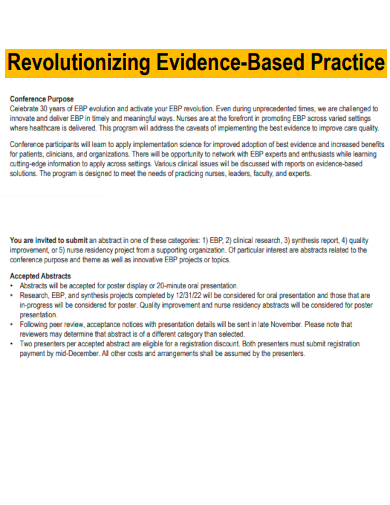
uiowa.edu
57. Limitations of Evidence Based Practice
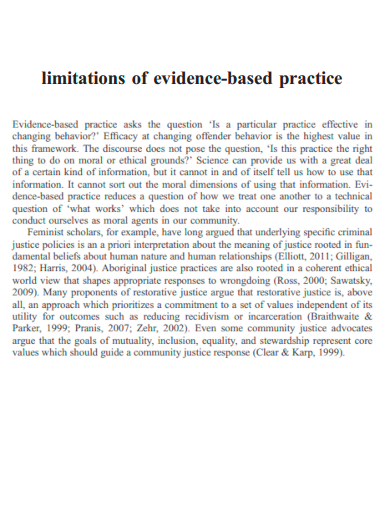
restorativesolutions.us
58. Evidence Based Practice in Profession
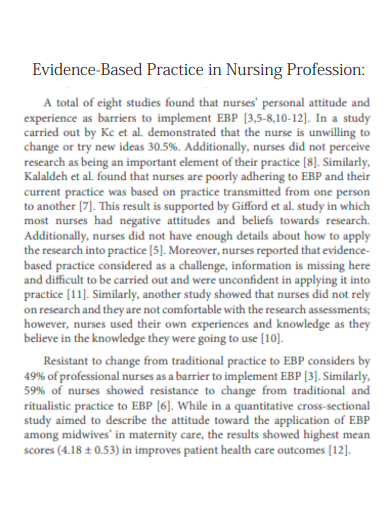
hilaris.com
59. Evidence Based Practice Models to Maximize
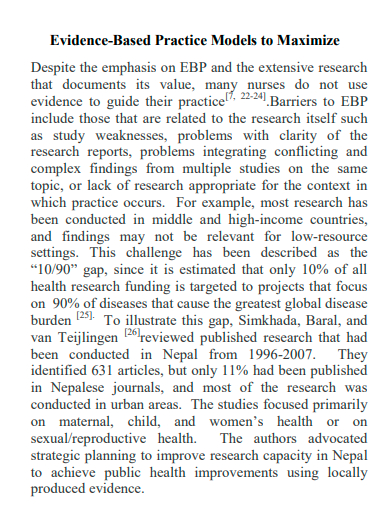
uab.edu
60. State Implementation of Evidence Based Practice
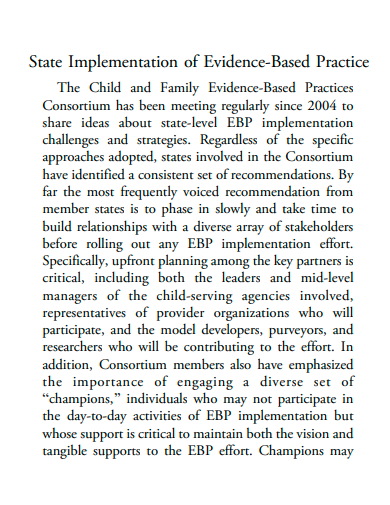
washington.edu
61. Evidence Based Practice Project
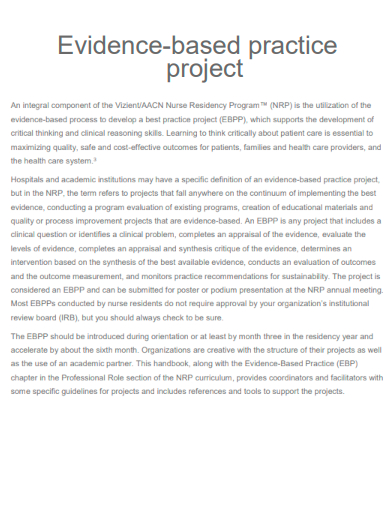
njccn.org
62. Evidence Based Practice Tools
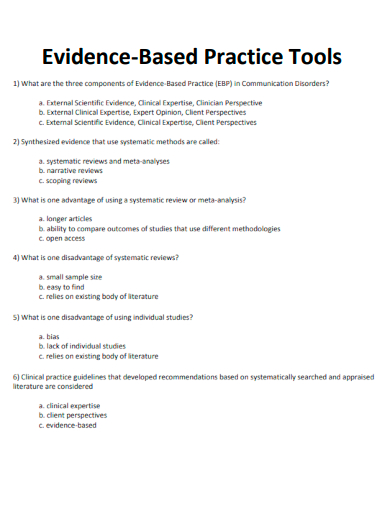
asha.org
63. Instruments to assess Evidence Based Practice
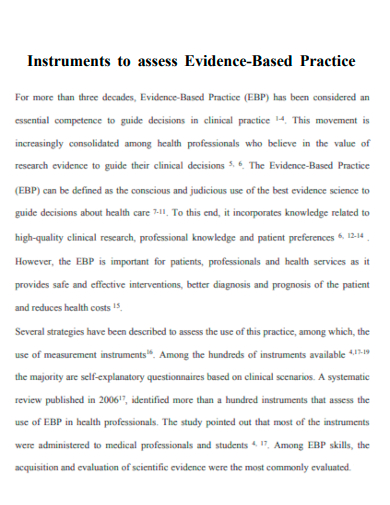
biorxiv.org
64. Real Evidence Based Practice
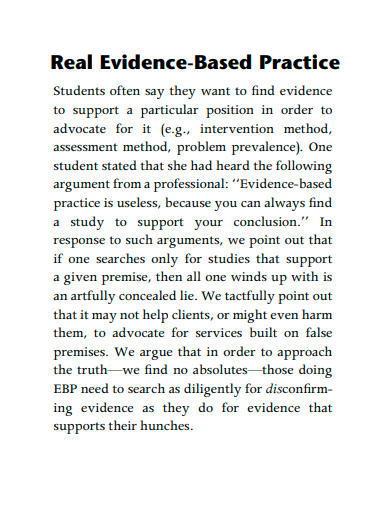
sjsu.edu
65. Evidence Based Practice Competencies
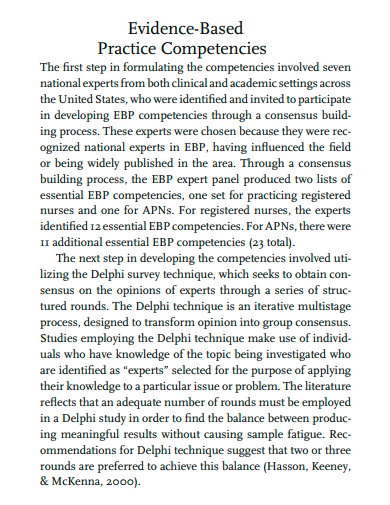
wiley.com
What Is an Evidence-Based Practice?
Evidence-based practices are practices, actions, and cultured traditions that have evidence and proof that support the viability and effectiveness of the said practice. These practices can range from different contexts that are highly dependent on their tone and theme.
How to Know if The Practice is Evidence-Based
Evidence-based practices are associated with actions and practices that are proven effective and efficient. It is important to know if the practices and actions the person will do are highly effective and efficient, as these two characteristics will ensure success in whatever effort one is trying to make. Best practices are often in the form of evidence-based practices.
Step 1: Determine the Age of the Practice
Most evidence-based practices have stood the test of time, which means that people have had the time to conduct observations on the results of the practice. Most evidence-based practices have proofs and evidence that people have gathered over a long period of time.
Step 2: Research if There is Evidence Supporting the Practice
You must research if there is any evidence that supports the effectiveness of the practice. This will allow you to understand how various pieces of evidence can support and prove the effectiveness and efficiency of a specific practice.
Step 3: Try Out or Prove the Practice’s Effectiveness
You can also opt to try out and prove the practice’s effectiveness. This will take some time as evidence-based practices will require the person to provide plenty of evidence and proof for the practice’s effectiveness.
Step 4: Identify if The Information is Up-to-Date
Evidence-based practices will need to have evidence that is up-to-date and recent. You must identify the information and evidence the practice relies on it up-to-date. If it doesn’t then the practice might not be considered evidence-based.
FAQs
Evidence-based practices are often the most efficient and effective way to conduct a specific action in a particular field. For example, doctors will need to use evidence-based practices to treat their patients due to the delicate nature of their jobs. In most cases, it is important to use evidence-based practices as they are the most effective version of the practice.Why is it important to always use evidence-based practices?
In the health industry, all practices must have three specific pieces of evidence to be considered as the most practical practice one can do in treatment. The first element one should consider is that the evidence that backs the practice is current and updated. The second element is that the practice should perfectly match the patient’s wants and needs. Finally, the practice should be on par with the clinician’s knowledge and skill.What are the three elements of evidence-based practice in the health industry?
Evidence-based practices are often scientific and have an extensive scholarly record, which objectively backs the practice. You can find the best sources of these practices in scientific research, data from surveys and questionnaires, previous organizational data, and professional expertise and experience.What are the best sources of evidence-based practices?
Evidence-based practices are specific practices and actions that people have researched thoroughly which proves their effectiveness and efficiency. It is important to understand and know how to identify evidence-based practices as they will improve one’s performance in their profession and everyday life.


